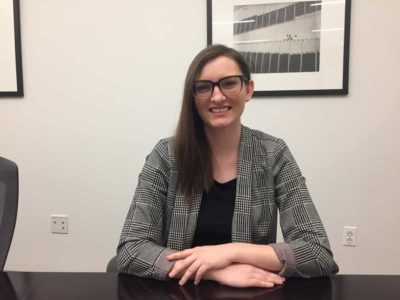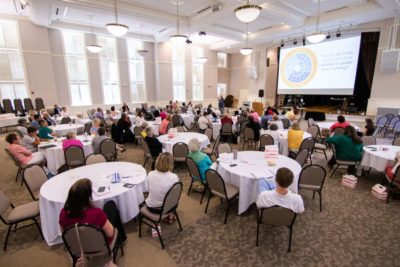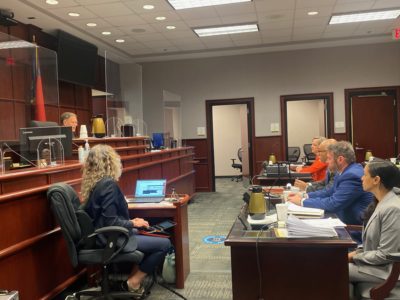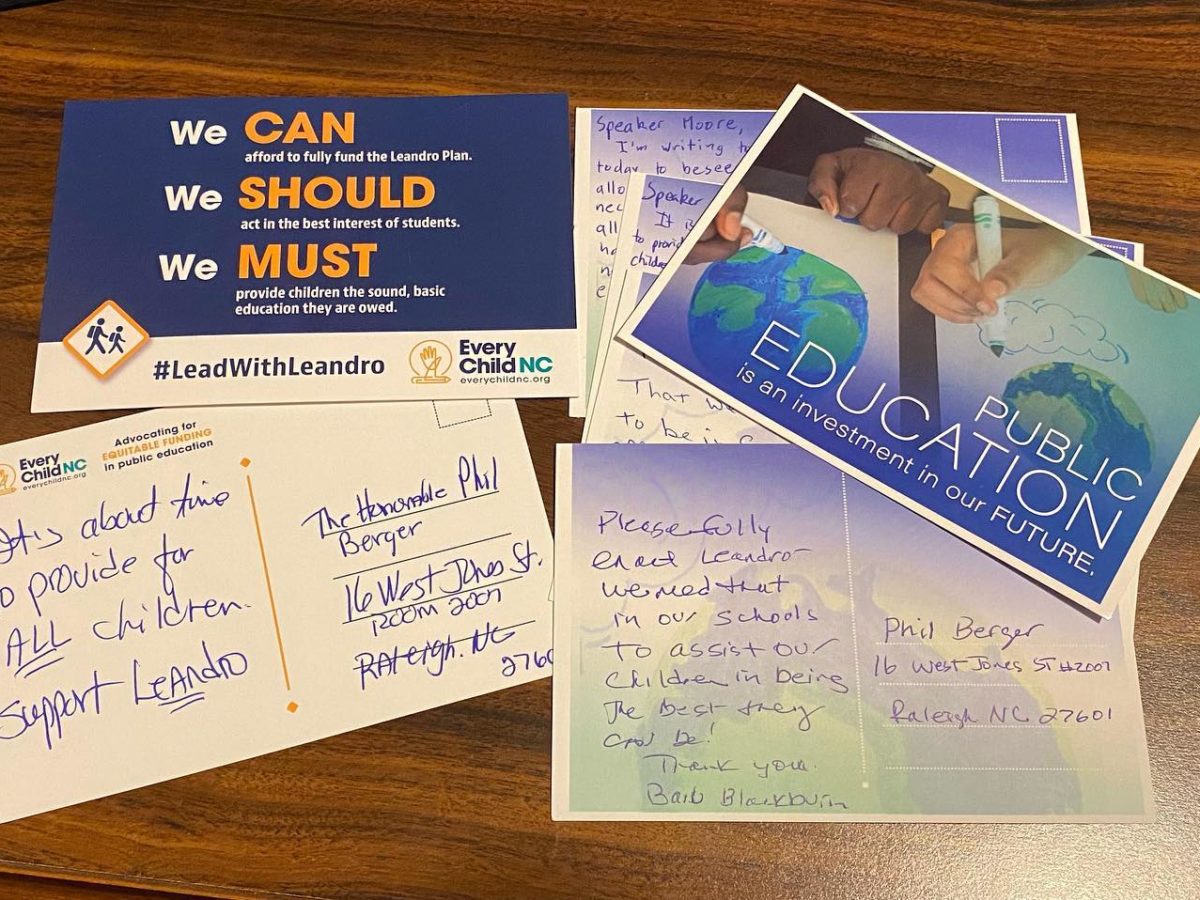
Share this story
- “My Christian faith also calls me to love my neighbor, and these schools, these kids, are our neighbors.” Pastors for NC Children is mobilizing faith communities across the state to advocate for public schools.
- When Rev. Suzanne Parker Miller’s son started kindergarten, she joined the PTA. There, she “started hearing folks saying, ‘We need the faith communities to speak up on this, we need the faith community’s support.’”
|
|
Rev. Suzanne Parker Miller attended her first Moral Monday event in 2013.
The Moral Mondays movement, started by Rev. Dr. William Barber in North Carolina the same year, consists of a diverse coalition of faith and community leaders fighting against poverty and inequality.
The first Moral Monday that Parker Miller attended – focused on education – inspired her to get more involved in public schools. A few years later, her son started kindergarten; she joined his PTA.
“As I started to get involved, I was always doing it from a faith perspective internally, but not externally,” said Parker Miller, who is a Moravian minister. “I started hearing folks saying, ‘We need the faith communities to speak up on this, we need the faith community’s support.’”
Seven years after attending her first Moral Monday, Parker Miller launched a nonprofit to mobilize faith communities for public education – Pastors for N.C. Children (PNCC).
“Jesus cared for the children, and they’re deserving of that,” said Parker Miller, executive director and founder of PNCC. “My Christian faith also calls me to love my neighbor, and these schools, these kids, are our neighbors.”
“1.5 million kids in the state are involved in public schools, and almost 100,000 staff. That’s a lot of people who we can care for and help.”
Suzanne Parker Miller
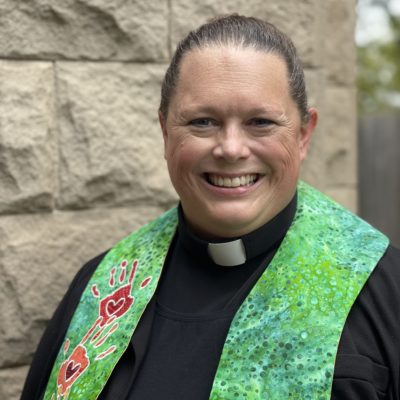
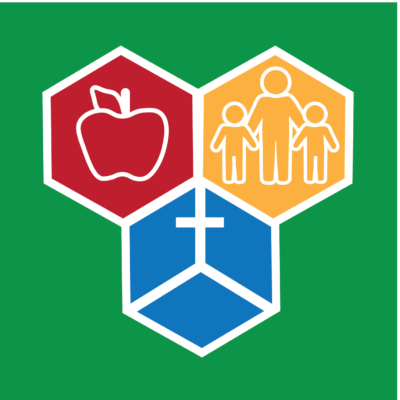
As the daughter of an educator, Parker Miller said she always cared about education. As a mom of two kids – rising second and fifth graders – she witnessed the myriad ways schools help communities. She also saw the lack of resources at many schools.
Faith communities have sometimes harmed public education, Parker Miller said. But they’ve also helped. Many churches support schools in their communities through backpack, tutoring, and food and clothes donations.
“Those things are really good and really needed,” Parker Miller said. “But why do we have to continue to do those things over and over again?”
PNCC is an effort to help people of faith advocate for public education in more systemic ways.
“I do a lot of presentations about that, and just why we need the church’s support for public schools,” Parker Miller said. “The way we love our neighbor and we help children flourish, and doing some of the theological work around connecting scripture and justice.”
‘The faithful task you’re called to do’
In February, PNCC launched its first initiative: Mission Amplify, a letter-writing campaign to state legislators. Drawing from the ancient prophetic tradition, PNCC trains churches to write postcards to lawmakers six times a year about various education topics. So far, PNCC has trained more than 300 people from churches across the state.
Each session’s “postcard party packet” includes information and statistics about the topic, like the shortage of school nurses. The guide also includes a devotional and prayer for the group to complete. The session that requested the state fully fund the Leandro Plan, for example, discussed the Old Testament story of God speaking to Moses in a burning bush. The devotion called for participants, like Moses, to move “from a view of scarcity to abundance.”
Mission Amplify opted for postcards to make the process of contacting lawmakers less intimidating. This initiative, PNCC hopes, is “a way for people who care to know what to do.”
“Advocacy doesn’t have to be scary – it’s not scary,” Parker Miller said. “It’s something that anybody can do, and so we just want to help equip them with that ability.”
Saint Andrews Presbyterian Church in Raleigh hosted a trial letter-writing party the December before Mission Amplify officially launched.
Julie Cazin, co-chair of the education issue group of the church’s committee for social justice, said a Bible study and Sunday school class at the church meet monthly to write postcards.
“It’s a wonderful, easy way for us to do some hands-on work that we hope is making a difference for kids in North Carolina,” said Cazin, who is a community coordinator with Mission Amplify.
“Presbyterians have a long history of being involved and interested in education,” added Rev. Dr. Tom Watkins, the senior pastor at Saint Andrews. “And a long history of being involved in mission, particularly this congregation, so this is an exciting step.”
Watkins said church members are generally more willing to engage current events when the church discusses them from a theological perspective, rather than an ideological one. That’s important, he said in a “purple” state and church.
One theological premise Saint Andrews emphasizes in its social justice work is the Christian Bible passage Matthew 25. At the end of the passage, Jesus identifies himself with the hungry, thirsty, sick, and imprisoned. He then says whatever is done to “the least of these” is actually done for him.
“How do we live that out in very tangible ways?” Watkins said. “That’s really key for us.”
“The other thing is there is a bit of a prophetic tradition in this congregation, and certainly Mission Amplify allows us to do that too,” he added. “We’re writing a word of emphatic importance to those who need to hear. …You may not see the accomplishments of your work, but you keep at it because that’s the faithful task you’re called to do.”
‘To make heaven on earth’
PNCC modeled itself after Pastors for Texas Children, which formed in 2013 and has since expanded to 8 states in the Southeastern United States.
Each of the independent organizations jointly focus on ensuring public money goes to public schools. In North Carolina, PNCC has primarily focused on the decades-long Leandro case with the Every Child NC coalition.
The Leandro case started in 1994 when families from five low-wealth counties sued the state and said it wasn’t meeting its obligation to educate all students equally. The state Supreme Court ultimately said that North Carolina’s children have a fundamental right to the “opportunity to receive a sound basic education” and that the state had not lived up to that constitutional requirement.
In late 2021, the North Carolina Court of Appeals blocked the transfer of the $1.7 billion ordered by Judge David Lee toward the Leandro plan. In April, a different judge modified Lee’s order to say that the state still owed $785 million to the public school system. The North Carolina Supreme Court will hear oral arguments the week of Aug. 29 to decide if the state needs to transfer that money.
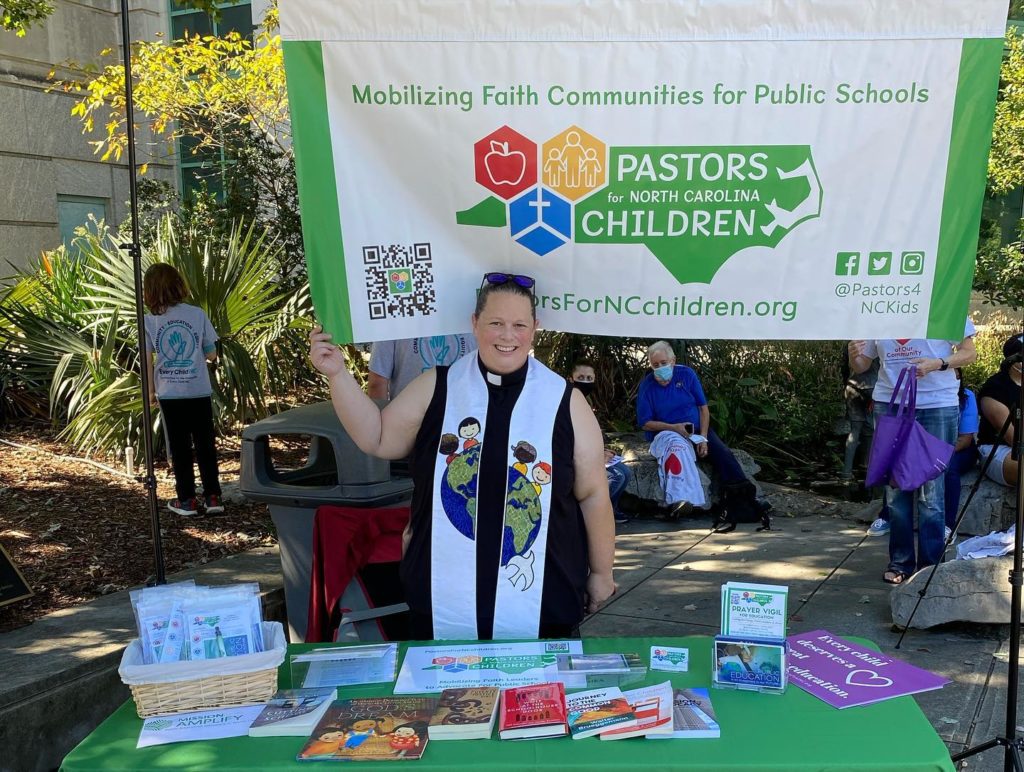
PNCC is busy preparing for the August Leandro hearing. On Wednesday, the organization braved the rain to help lead a prayer vigil outside the state legislature building, as it did in October 2021. The group also plans to gather for a vigil the first day of the August hearing.
Mission Amplify is nonpartisan, so it never endorses specific politicians. The organization does voter education work, but presentations focus on policies, not people. And despite possible confusion based on the nonprofit’s name, the group doesn’t ever evangelize children, Parker Miller said.
Instead, PNCC focuses on showing the love of Jesus by advocating for equitable education that helps all children flourish. Justice in public schools could look like ending the school to prison pipeline, Parker Miller said, providing all students free meals, or fully funding schools in every zip code.
“The Lord’s Prayer talks about bringing heaven to earth, to make heaven on earth,” Parker Miller said. “I don’t think that’s far away and way off in the future – I think that’s a here and now.”
Behind the Story
This story is a part of EdNC’s faith work. If you’d like to share your faith story with us, reach out to hmcclellan@ednc.org.
Recommended reading
